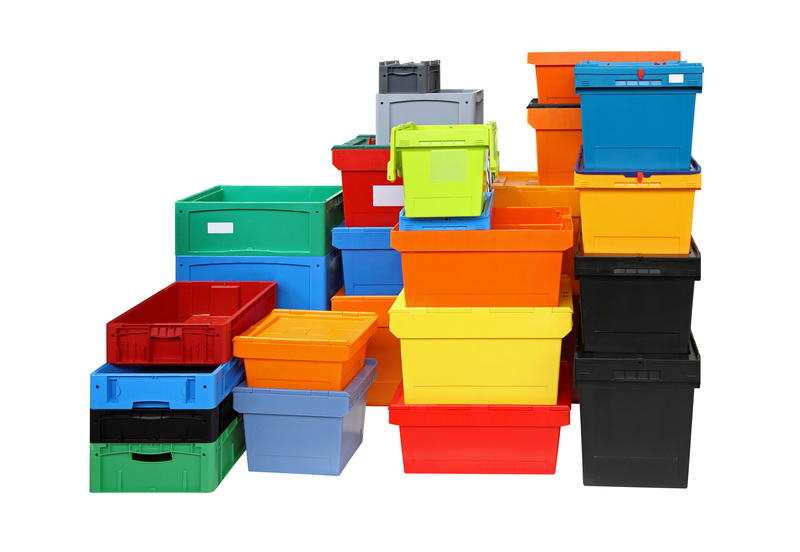Simple Steps to Ensure Freezer Longevity When Not Needed
Posted on 18/05/2025
Simple Steps to Ensure Freezer Longevity When Not Needed
Is your freezer sitting idle during certain months, or do you have an extra one you rarely use? Ensuring freezer longevity when not in regular operation saves you money and extends the life of your appliance. Whether you're planning a move, a long vacation, or simply need to store your freezer for a season, following the right steps is crucial. In this comprehensive guide, we'll walk you through simple, **SEO-friendly**, and effective measures to keep your freezer in top shape--even when it's not needed!

Why Freezer Maintenance During Downtime Matters
Many people assume that when a freezer isn't in use, it's safe to just unplug it and forget about it. However, this approach can actually cause damage and lead to unnecessary repairs or reductions in appliance lifespan. Proper storage and care are key to ensuring that your freezer remains efficient, clean, and operational for years to come.
- Prevents foul odors and mold growth
- Avoids mechanical faults and moisture buildup
- Saves money by reducing replacement and repair costs
- Keeps the freezer ready for immediate use when needed
Step 1: Thoroughly Empty and Clean the Freezer
Remove All Food Items
Before switching off your freezer for an extended period, remove all food and perishable items. This is critical to prevent odors and bacterial growth. Donate unneeded food, or transfer it to another appliance if possible.
Defrost the Freezer
Defrosting is one of the most vital maintenance actions. As frost builds up over time, it can strain the freezer's workings or cause issues during inactivity. Allow all ice to fully melt--you can speed up the process by placing a pot of hot water inside and keeping the door open.
- Unplug the unit
- Lay towels at the bottom to absorb water
- Wipe down any remaining moisture
Deep Clean Interior and Exterior
Clean the inside with a solution of mild soap and water. For stubborn odors, use a mixture of baking soda and water, scrubbing all surfaces including shelves, drawers, and gaskets. Clean the exterior, especially underneath and behind, to remove dust and prevent pest attraction.
Step 2: Dry it Out Completely
A completely dry freezer is your best defense against mold and mildew growth. Moist environments encourage bacterial buildup and damage electronic components.
- Leave the door open for at least 24-48 hours
- Use a dry cloth to absorb any remaining moisture
- Place moisture absorbers or baking soda inside
_Tip: Keeping the door slightly ajar allows for circulation, preventing odors and microbial growth._
Step 3: Disconnect and Store Correctly
Unplug and Secure the Cord
Disconnect the freezer from the power supply and secure the cord to avoid tripping hazards and cord damage. Some freezers come with a compartment to store the plug; if not, tape it securely to the back of the unit.
Choose the Right Storage Location
Selecting the ideal storage location is crucial for long-term freezer preservation.
- Seek a cool, dry area--garages, basements, and storage rooms are popular choices. Avoid damp spaces.
- Ensure proper ventilation; a freezer should have space on all sides for airflow.
- Keep it off the floor--use pallets or blocks.
_Note: Outdoor storage is only suitable for appliances rated for external use._
Step 4: Maintain the Door Seal
The door seal, or gasket, is a critical component for efficient freezer operation. Even during downtime, seals can dry out or lose flexibility, leading to loss of efficiency when the freezer is reused.
- Clean with mild soap and water, avoiding harsh chemicals
- Condition the gasket with a thin layer of petroleum jelly
- Avoid placing heavy objects on the door
Step 5: Prevent Odors and Pest Entry
Use Odor Absorbers
Freezer odors develop when air becomes stale. Baking soda, coffee grounds, or specially formulated odor absorbers work wonders in keeping your appliance smelling fresh.
Keep the Door Ajar
- Wedge a towel or small object in the door to keep it open, preventing a closed environment perfect for mold.
- Leave a note or warning sign--especially in shared spaces, to indicate it's out of use.
Guard Against Pests
- Store the freezer in a pest-free area
- Seal any entry points around the storage room
- Consider using natural repellents like cedar chips
Step 6: Protect the Appliance from Damage
Prevent Dust and Moisture Build-Up
Dust and moisture are enemies of electronics and moving parts. Cover your freezer with a light, breathable dust cover or sheet--never use plastic that traps humidity.
Monitor Regularly
- Do periodic checks every few weeks to ensure there are no pest issues, leaks, or developing odors
- Re-wipe interior if any moisture builds up
Maintain Upright Position
Always store the freezer upright. Storing chest freezers on their sides or backs can cause compressor oil to leak, leading to costly problems.
Step 7: Prepare for Restart
When the time comes to use your freezer again, prepare it for safe and efficient operation.
- Inspect seals and internal compartments for dust or pests
- Wipe down all surfaces with a damp cloth
- Plug in and allow to run empty for several hours to check functionality
- Replenish with food only after reaching desired temperature
Common Mistakes to Avoid When Storing a Freezer
- Leaving the door closed tightly--encourages humidity and mildew
- Ignoring regular checks--problems may develop unnoticed
- Skimping on cleaning--leftover residue can permanently stain or damage interiors
- Blocking ventilation--risks rust or electrical issues
How Long Can a Freezer Be Safely Stored Unused?
If you follow the outlined steps, a freezer can be stored unused for **months or even years** without significant risk of damage. However, for the best freezer longevity, aim to check and maintain the unit at least once every 3-6 months, particularly in humid climates.
Frequently Asked Questions About Freezer Longevity
Should I unplug my freezer if not in use for a long time?
Yes, unplugging your freezer during extended periods of inactivity is recommended. This prevents unnecessary energy consumption and reduces wear on electronic components. Always follow the drying and cleaning protocol described above.
Can I store my freezer in the garage?
Many freezers can be stored in a garage, but ensure it's a dry, ventilated space free from extreme temperatures and pests. Avoid direct sunlight and stand the freezer upright.
What is the best way to keep pests out?
Clean thoroughly, wedge the door open, and store in a secure location. Considering natural repellents or traps can add an extra layer of protection.
Is defrosting necessary if the freezer is self-defrosting?
Yes. Even self-defrosting models should be defrosted and dried before storage to minimize moisture and risk of mold or corrosion.

Conclusion: Preserve Your Freezer's Lifespan with Smart Storage
_Investing a little time and effort into proper freezer care when it's not in use can make a world of difference. Not only does it enhance freezer longevity, but it also ensures food safety, energy efficiency, and savings on repair or replacement costs._
Recap of Key Steps:
- Empty and clean the interior thoroughly
- Defrost and allow to dry completely
- Disconnect, store the cord, and select an appropriate location
- Maintain gaskets and door seals
- Use odor absorbers and keep the door slightly open
- Protect from dust, pests, and moisture
- Monitor occasionally and prepare for restart properly
By following these simple steps to ensure freezer longevity when your freezer is not in active use, you safeguard your investment and guarantee your appliance is always ready for action when you need it most.
Related Keywords and Phrases
- Extending freezer life
- Freezer storage tips
- How to store a freezer unused
- Maintain freezer lifespan
- Idle appliance maintenance
Take care of your freezer today--so it will take care of you tomorrow!
Latest Posts
Hitting the Right Key: Why Professional Piano Movers Rock
Step-by-Step Guide to Packing for Your Next House Move
Unlock the Secrets to a Relaxed House Move



